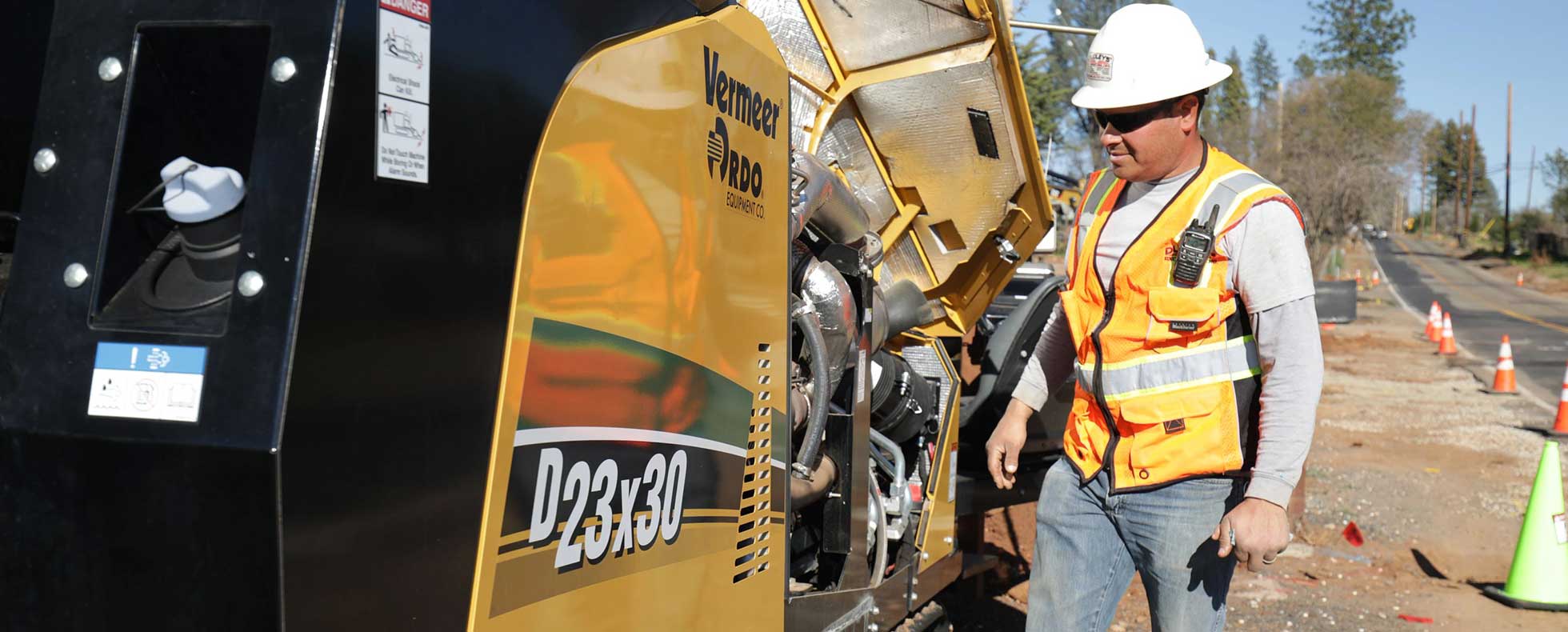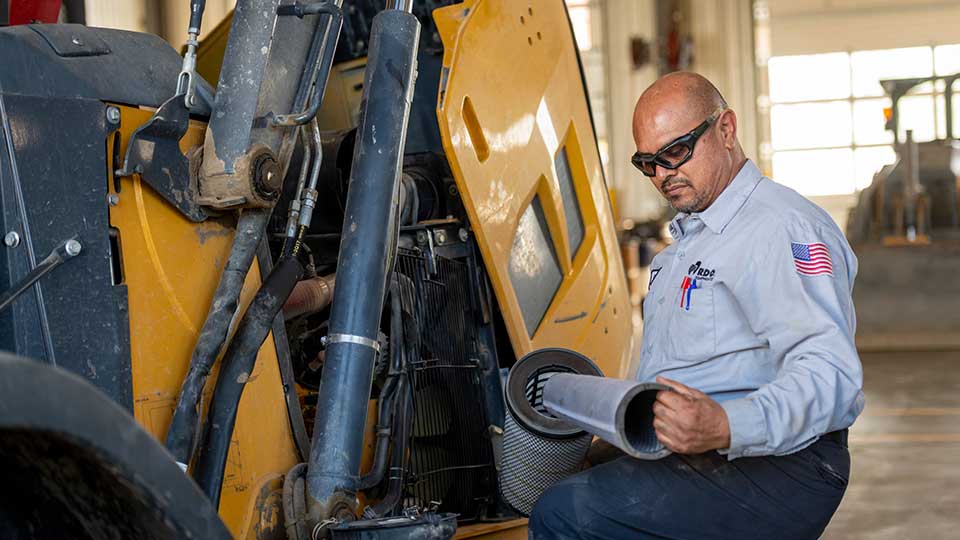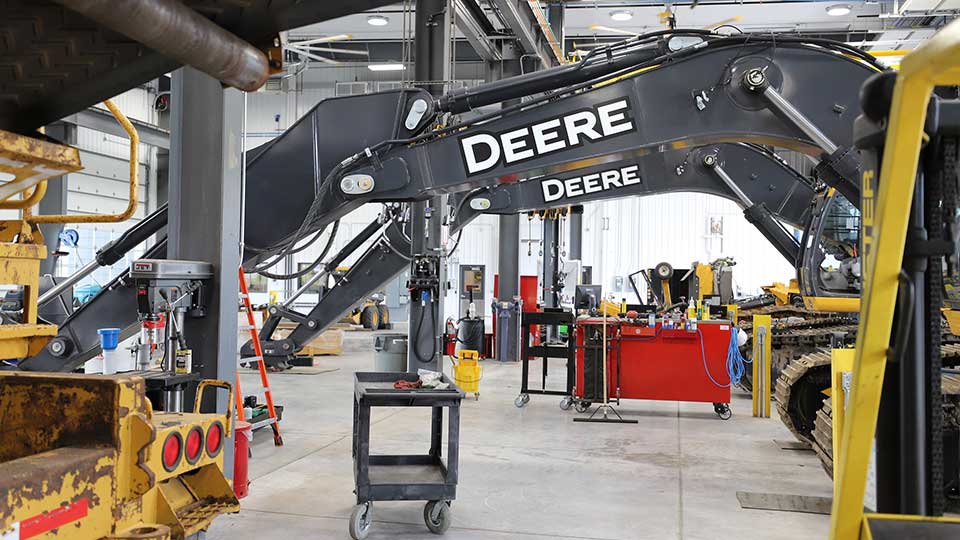
Becoming a field service technician — also often called a mobile diesel mechanic — could be an excellent next step in your career. If you’ve spent time in the shop and are ready to take your skills and experience into the field, making this switch has several advantages.
Not only will you likely see a pay increase between the shop and the field, but you’ll build strong relationships with customers as you help keep their operations up and running.
But what does it take to become a field service technician? Do you need to go back to school or participate in certain training?
Great questions!
As a field service operations manager here at RDO Equipment Co., I help technicians reach their goals of becoming field service technicians regularly.
In this article, I’ll explain some of the requirements of becoming a field service technician so you can work on taking this step in your career.
Field service technicians work on heavy machinery and equipment outside the service shop environment. Every day, field technicians travel to work sites/machine locations, perform diagnostics, troubleshoot issues and perform repairs.
Field technicians work closely with on-site stakeholders (business owners, operators, etc.) to make sure their problems are resolved.
At RDO, we hire field service technicians to specialize in repairing machinery in industries like agriculture, construction, forestry and mining.
Here’s what a day in the life of these team members looks like.
If you’re interested in becoming a field service technician, you might wonder if you need to go back to school to get started.
Not usually.
Instead, employers seek relevant work experience and manufacturer product training in a field service technician candidate.
To become a field service technician, you’ll want to pursue product education and courses for the machinery you work on.
At RDO, for example, construction technicians should have completed the applicable training capstone program — at a minimum — before joining the field service team.
This means they’ve completed all the training, coursework and assessments necessary to become a “capstone” technician in their area (agriculture, construction, Vermeer, etc.).
To be considered for a field service technician, you will also want to be proficient in the third-party systems technicians use to perform their duties.
At RDO, examples of these are John Deere Parts Advisor and John Deere Service Advisor.

This question is a little trickier to answer. Your success as a field technician depends on your background as a mechanic and your experience with the machinery you’ll be working on.
Generally, field service technicians should have at least four years of professional experience in the service shop before making this switch. This can fluctuate greatly depending on the situation.
The goal is that you spend enough time in the shop — working on the machinery you’d see in the field — to master many aspects of the equipment you work on.
After 4-5 years in the shop, a technician should have worked on every piece of machinery and performed every repair they’d see in the field.
However, depending on your background, experience, motivation and skills as a technician, this might take more or less time.
In field service, you’re largely on your own. Although you’ll have a connection to the shop, other technicians and your supervisor over the phone, you’ll be responsible for performing all diagnostics and repairs.
To do this effectively, you need to have extensive mechanical skills. This includes great understanding of the electrical, fuel, AC, hydraulic, braking and other systems you’ll encounter — not to mention diesel engines.
Along with these skills — which should develop over your time in the shop — here are some skills you’ll need to become a field service tech:
Related Article: Field Service Technician Skills: 6 Skills That Will Make You Successful

Everyone’s career path looks different. There are a lot of ways to get started on the journey to becoming a field service technician.
These are not entry-level jobs, though. So, after you become a diesel technician (if you haven’t already), start gaining experience and taking training courses.
Obtain as many capstones and certifications as possible to improve your knowledge.
This will show your department leaders your commitment to improving and growing in your career.
Another step to becoming a field tech is to continually become more proficient at repairs during your time in the shop. You’ll be doing the same work in the field, just in harsher conditions and under more pressure.
Become a dependable shop technician. This will draw the attention of your peers and supervisor(s), helping you make your case when a field opportunity opens up.
When one does, and you have the experience and track record to back you up, apply for it. Here are some questions to consider asking in your interview to make sure it’s the right position for you.
You aspire to be a field service technician some day. You’re not alone. These positions are really rewarding. Field service technicians make an impact on their companies and customers every day as they provide an essential service.
Getting started in this career, although challenging, isn’t impossible.
Whether you’re just starting your career as a service technician or have been in this field for a while now, your first step is to continue to gather experience and participate in training.
Out in the field, you need to be confident in your technical skills and abilities to do great work. Your employer will also need to know they can trust you in these high-pressure situations.
If you’d like to become a field service technician at RDO, here’s what your first 90 days will look like.
Think we’d be a good fit?
Learn more about a career as a service technician at RDO.
If you have any questions, please don’t hesitate to contact us. We’re happy to help you on your journey to building a career you’re proud of.